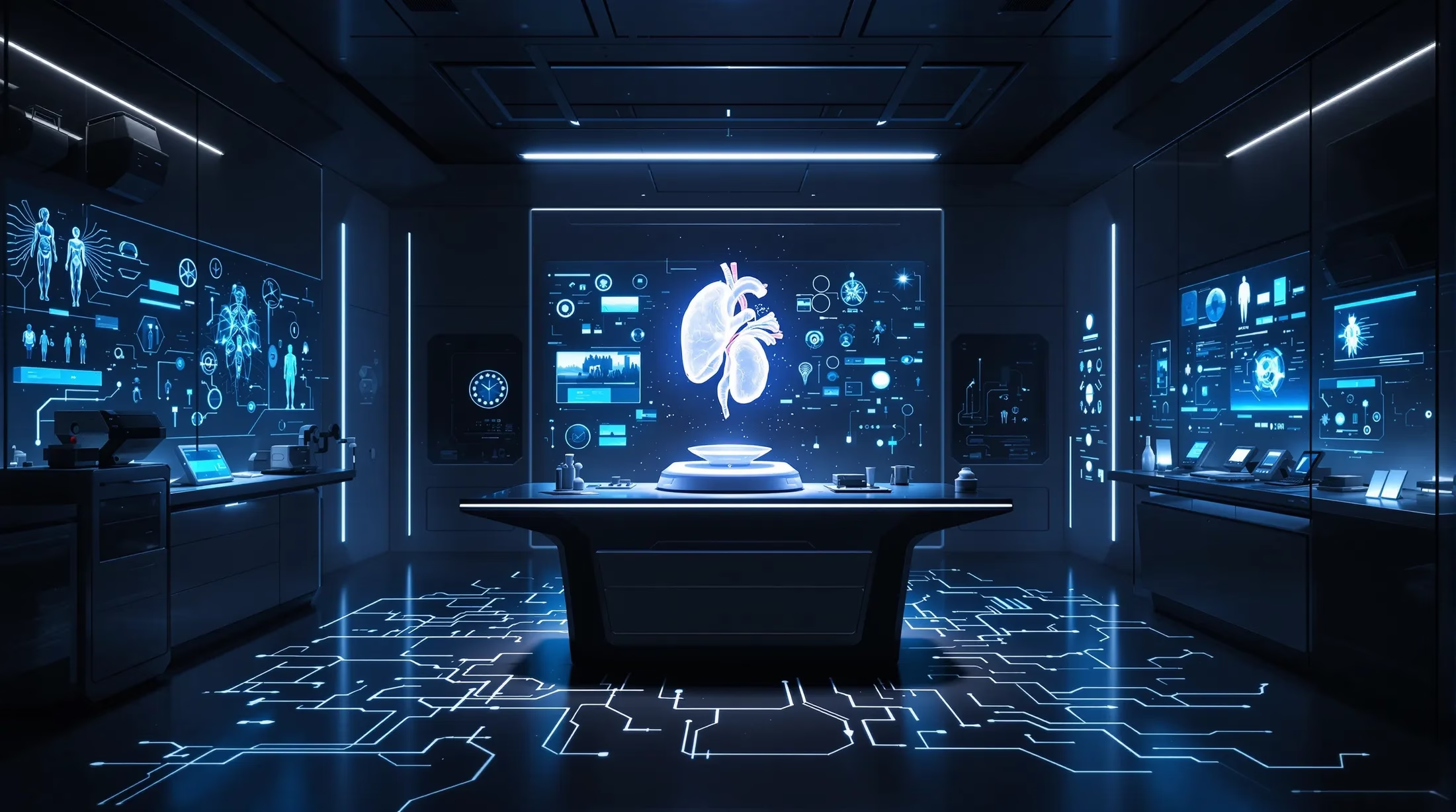Biomedical Engineer: Exploring the Role and Opportunities in Healthcare
Discover how biomedical engineers are revolutionizing healthcare through innovative solutions and cutting-edge technology. From developing life-saving medical devices to advancing treatment methods, these professionals bridge the crucial gap between engineering principles and medical needs.
Understanding the Role of a Biomedical Engineer
Biomedical engineers function as essential connectors between medicine and engineering, developing innovative healthcare solutions through technical expertise. They identify patient needs through direct observation of healthcare provider-patient interactions and create technologies that address specific medical challenges. Their unique position enables them to transform medical problems into practical engineering solutions that enhance lives.
Operating across the healthcare spectrum, these professionals contribute to various stages of medical technology development. Their work encompasses research, development, production, and implementation, ensuring that medical technologies meet rigorous safety standards while remaining accessible and effective.
Key Responsibilities and Skills
- Design and development of sophisticated biomedical equipment
- Creation of specialized medical device software
- Research into new materials and procedures
- Collaboration with healthcare professionals
- Training medical staff on equipment usage
- Ensuring regulatory compliance
Essential skills for success in this field include:
- Advanced mathematical and engineering knowledge
- Strong research capabilities
- Effective communication skills
- Data analysis expertise
- Project management abilities
- Ethical awareness and adaptability
Work Environments and Industries
| Industry | Role Focus |
|---|---|
| Medical Device Companies | Design and development of diagnostic and therapeutic equipment |
| Hospitals | Technology management and integration |
| Research Institutions | Investigation of new materials and methods |
| Pharmaceutical Companies | Drug delivery systems development |
| Government Agencies | Technology evaluation and safety standards |
Educational Pathways in Biomedical Engineering
The path to becoming a biomedical engineer begins with a strong foundation in science and mathematics. Educational options include dedicated biomedical engineering programs or related fields such as mechanical engineering, electrical engineering, or biology with later specialization in biomedical applications.
Undergraduate and Graduate Programs
Undergraduate education typically includes:
- Core coursework in calculus and differential equations
- Physics and chemistry fundamentals
- Biology and computer programming
- Engineering principles
- Specialized biomedical engineering courses
Graduate education offers advanced specialization opportunities through master’s and doctoral programs, focusing on areas such as biomaterials, medical imaging, or prosthetic design. Many professionals combine different educational backgrounds, such as biology with biomedical engineering, to create a comprehensive skill set valued by employers.
Specializations and Research Opportunities
The biomedical engineering field offers diverse specialization paths that align with individual career goals. Students can focus on:
- Medical imaging and diagnostic systems
- Biomaterials development
- Tissue engineering applications
- Biomechanics and movement analysis
- Neural engineering interfaces
- Rehabilitation engineering solutions
Students can enhance their expertise by combining biomedical engineering with complementary disciplines. Common interdisciplinary combinations include:
| Field | Application |
|---|---|
| Computer Science | Bioinformatics and medical data analysis |
| Chemical Engineering | Drug delivery systems and therapeutics |
| Materials Science | Medical implant development |
Research opportunities form a crucial component of biomedical engineering education. At the undergraduate level, students gain hands-on laboratory experience through:
- Research assistantships in university laboratories
- Internships with medical device companies
- Collaborative projects with healthcare facilities
- Participation in cutting-edge investigations
- Work on tissue regeneration projects
- Development of neural interfaces
- Research on wearable medical technology
Graduate research enables deeper exploration of specialized topics, establishing a foundation for future innovations in healthcare delivery. These experiences not only strengthen technical proficiency but also help build valuable professional networks essential for career advancement.
Career Opportunities for Biomedical Engineers
Biomedical engineering provides diverse career pathways with significant impact in healthcare. The field offers multiple professional trajectories:
- Government regulatory teams – establishing and enforcing medical device safety standards
- Field engineering – installing and maintaining specialized medical equipment
- Systems engineering – managing healthcare projects from concept to production
- Research and development – creating innovative medical solutions
- Clinical engineering – supporting healthcare technology in medical facilities
Entry-level positions typically offer salaries around $66,917, with substantial growth potential as experience increases. Employment settings include:
- Medical device manufacturers
- Public and private healthcare institutions
- Research organizations
- Technology start-ups
- Athletic-focused enterprises
Emerging Fields and Trends
The biomedical engineering landscape continues to evolve, creating opportunities in cutting-edge specialties:
| Emerging Field | Applications |
|---|---|
| Robotics | Surgical assistance robots, rehabilitation exoskeletons |
| Neuroscience Interfaces | Brain-computer interfaces, neural stimulation technologies |
| Biomaterials | Novel materials, drug delivery systems |
| Data Science | Medical diagnostics, personalized treatment algorithms |
Professional Organizations and Networking
Key professional organizations supporting career development include:
- Biomedical Engineering Society (BMES)
- Institute of Electrical and Electronics Engineers Engineering in Medicine and Biology Society (IEEE EMBS)
- International Federation for Medical and Biological Engineering (IFMBE)
These organizations provide valuable resources including research access, conferences, and networking opportunities. Professional certifications, such as Clinical Engineering Certification and Certified Biomedical Equipment Technician credentials, enhance career prospects and validate expertise in specific areas.
The Future of Biomedical Engineering in Healthcare
Biomedical engineering continues to bridge the critical gap between medicine and engineering disciplines. The field’s evolution encompasses remote monitoring systems, regenerative medicine, and precision-based healthcare approaches. Engineers must adapt their skillsets while maintaining expertise in both engineering principles and biological systems.
Impact of Artificial Intelligence and Personalized Medicine
AI integration in biomedical engineering has revolutionized healthcare through:
- Enhanced diagnostic accuracy through machine learning algorithms
- Automated image interpretation systems for early disease detection
- Smart prosthetics with adaptive capabilities
- Personalized treatment planning based on genetic profiles
- 3D-printed patient-specific implants
- Targeted drug delivery systems
Challenges and Ethical Considerations
Biomedical engineers face significant technical and regulatory challenges in healthcare innovation development. These challenges include:
- Continuous adaptation to rapid technological advancements
- Navigation of stringent regulatory frameworks
- Implementation of rigorous testing protocols
- Integration with existing healthcare infrastructure
- Ensuring technical performance and usability
- Maintaining interoperability standards
- Addressing scalability requirements
The ethical landscape in biomedical engineering has become increasingly complex with technological sophistication. Critical ethical considerations include:
| Area of Concern | Key Considerations |
|---|---|
| Data Privacy | Protection of sensitive patient information, secure device connectivity |
| Accessibility | Cost-effective solutions, global availability, diverse population needs |
| Emerging Technologies | Genetic engineering implications, brain-computer interface boundaries, artificial organ development |
| Societal Impact | Technology adoption rates, cultural considerations, healthcare equity |
To address these challenges effectively, biomedical engineers must engage in multidisciplinary collaboration and participate in broader discussions about responsible healthcare technology advancement. This approach ensures that innovations not only meet technical requirements but also align with ethical standards and societal values.







